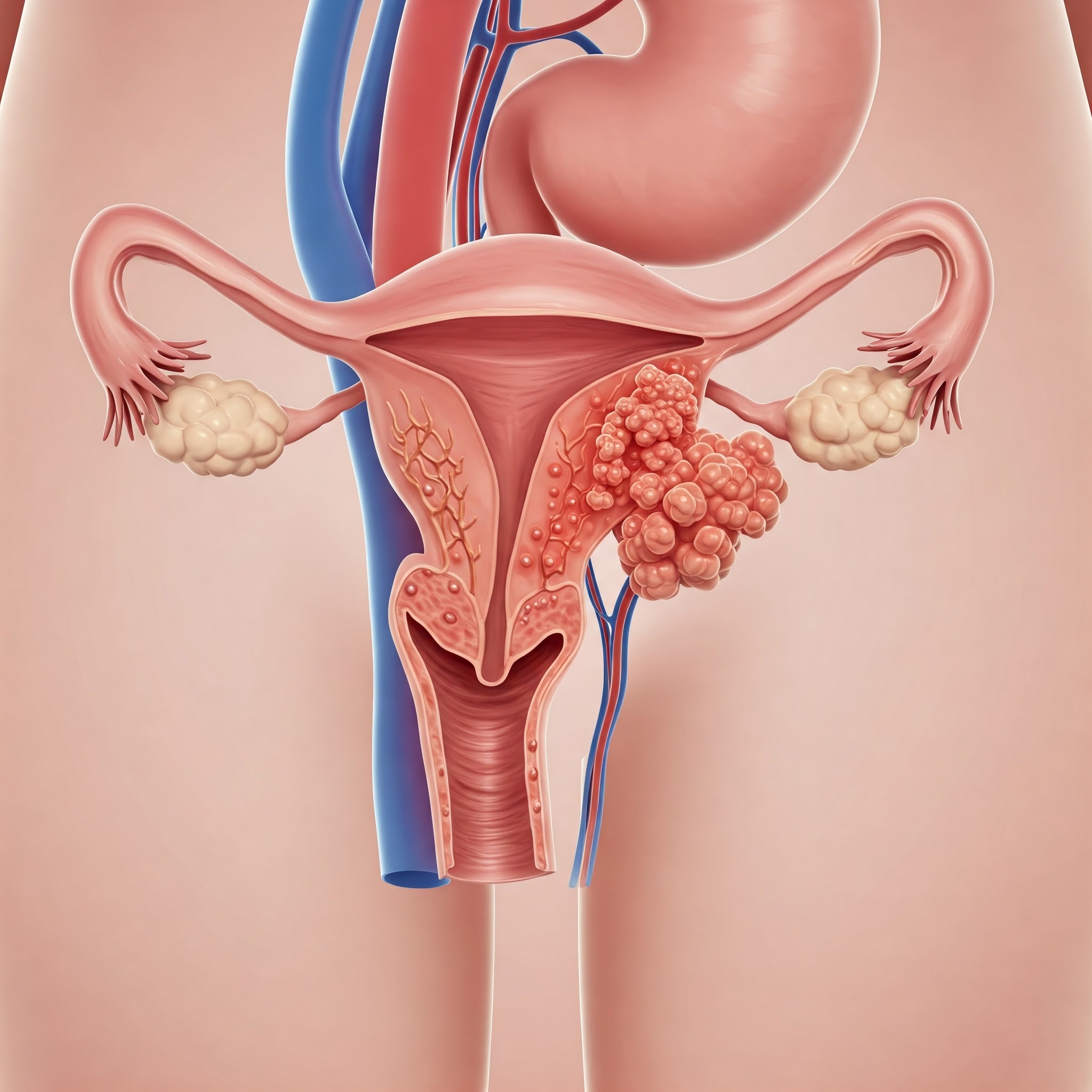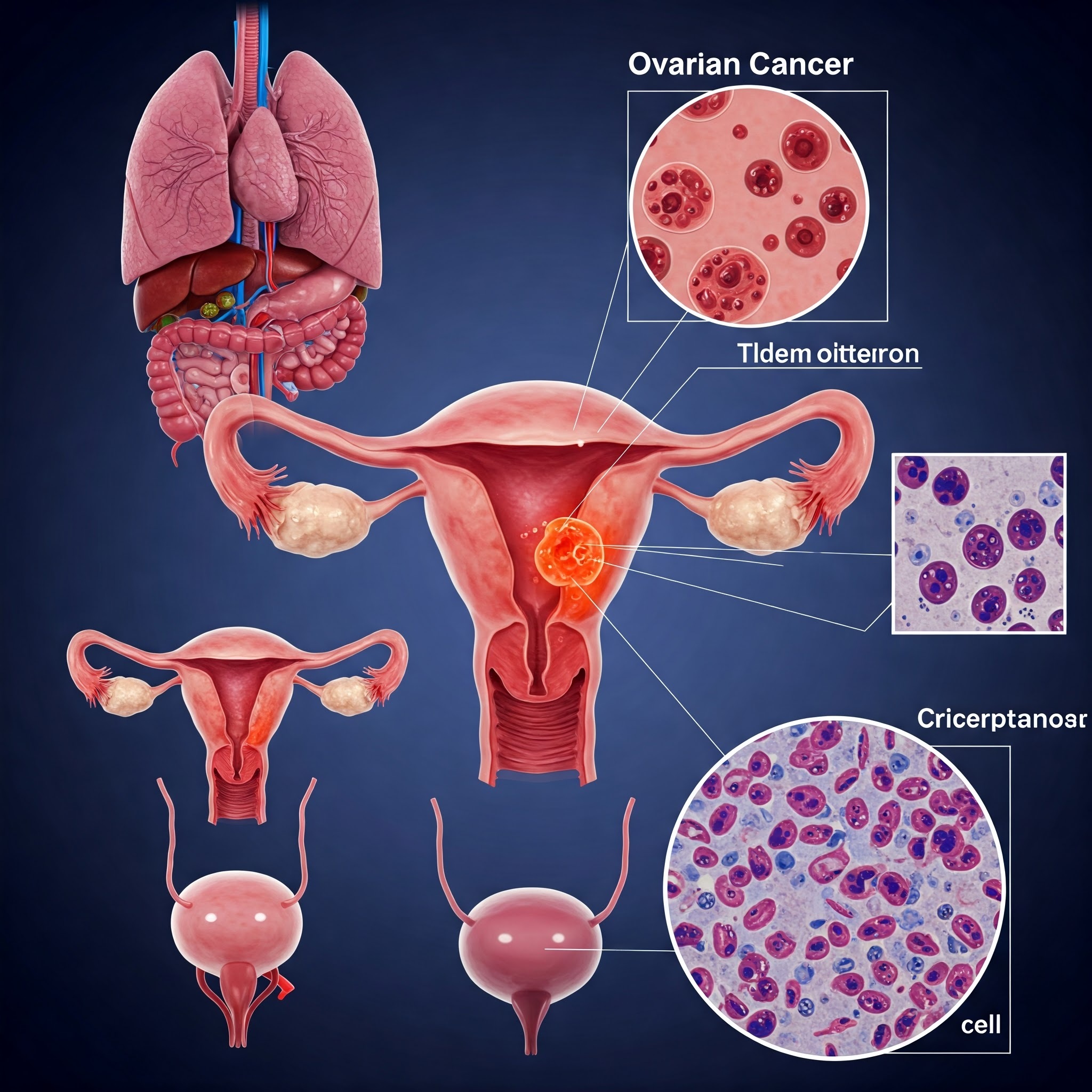Ovarian Cancer
Protect your health with early ovarian cancer detection
Expert guidance and comprehensive care for ovarian health
Recognizing the early symptoms of ovarian cancer, such as abdominal bloating, pelvic pain, and changes in appetite, is crucial for early detection. Our clinic offers advanced diagnostic services, utilizing state-of-the-art imaging and laboratory tests to accurately assess ovarian health. Early ovarian cancer diagnosis significantly improves the ovarian cancer survival rate, giving patients more treatment options and better prognoses.
Our multidisciplinary team develops personalized ovarian cancer treatment plans, incorporating the latest advancements in oncology. From surgery and chemotherapy to targeted therapies, we tailor our approach to meet each patient’s unique needs. At Neo-Woman’s, we prioritize compassionate care, empowering women with the knowledge and resources to take control of their ovarian health.


Neo-woman ovarian cancer clinic provides comprehensive care for ovarian health:
Our team of dedicated specialists is committed to supporting women through every stage of ovarian cancer diagnosis, treatment, and recovery. We offer expert consultations, advanced diagnostic tools, and personalized care plans to address concerns related to ovarian health. Understanding the symptoms of ovarian cancer, such as bloating, pelvic discomfort, and changes in appetite, is crucial for early diagnosis. Our clinic employs state-of-the-art imaging and diagnostic techniques to provide accurate ovarian cancer diagnosis and determine the best course of action.
- Personalized care for every patient
Ovarian cancer presents uniquely in every individual, and our approach reflects this understanding. We prioritize patient-specific care by designing treatment plans that consider the cancer’s type and stage, the patient’s general health, and personal goals. This personalized strategy ensures that each patient receives the most appropriate and effective surgical care.
Here are some of the check up and health screenings that you should get done:
- Pelvic Exam
- Pap Smear (Cervical Cancer Screening)
- Breast Exam
- Blood Pressure Measurement
- Cholesterol Screening
- Bone Density Scan (DXA)
- Blood Sugar Test (Glucose Screening)
- Thyroid Function Tests
- Blood Count (Complete Blood Count, CBC)
* The specific exams and screenings recommended can vary based on a woman’s age, family history, personal health history, and risk factors. It’s essential to discuss your individual healthcare needs and screening schedule with your healthcare provider.
- Utilizing modern surgical advancements
Our team integrates cutting-edge technologies and refined surgical techniques to address ovarian cancer. Minimally invasive procedures, such as robotic-assisted and laparoscopic surgeries, are often used to excise tumors with high precision. These methods reduce surgical trauma, limit scarring, and support quicker recovery, making them ideal when medically appropriate.
- Managing advanced ovarian cancer through debulking
In more complex cases, our specialists perform radical and debulking surgeries to remove as much of the tumor mass as possible. These procedures are especially critical in treating late-stage ovarian cancer, where minimizing tumor burden is key to improving treatment success and prolonging survival. Our surgeons aim to balance comprehensive tumor removal with preservation of surrounding healthy structures.
- Options for fertility preservation
For women of childbearing age diagnosed with early-stage ovarian cancer, fertility can remain a concern. Our gynecologic oncology team offers fertility-sparing surgeries, which aim to remove cancerous tissues while preserving reproductive organs such as the ovaries and uterus. These procedures offer hope for future pregnancy while maintaining rigorous cancer treatment standards.
- Holistic support beyond surgery
We understand that surgery is just one aspect of ovarian cancer care. That’s why we integrate surgical treatment with follow-up therapies and support systems, including chemotherapy planning, hormonal management, and emotional support services. Our goal is to provide seamless, whole-person care throughout the recovery journey.

Frequently asked questions
What are the early symptoms of ovarian cancer?
Early symptoms include bloating, pelvic pain, difficulty eating, and frequent urination. Early detection through regular screenings can improve outcomes.
How is ovarian cancer diagnosed?
Ovarian cancer is diagnosed using pelvic exams, transvaginal ultrasound, and blood tests like CA-125, followed by biopsy if needed.
What treatment options are available for ovarian cancer?
Treatments include surgery, chemotherapy, targeted therapy, and immunotherapy, customized to the cancer’s stage and type.
Are there risk factors for ovarian cancer?
Yes, factors like age, family history, genetic mutations (e.g., BRCA1/2), and hormone therapy can increase risk.
Can ovarian cancer be prevented?
While prevention isn’t guaranteed, risk can be reduced with regular screenings, maintaining a healthy lifestyle, and considering risk-reducing surgery if genetically predisposed.

Service line
Our locations
Neo-woman clinic
Apte Road
1212, Apte Rd, opp. Centro Hotel, Shirole Road, Shivajinagar, Pune, Maharashtra 411004
Contact us at: 9423039292
Our locations
Neo-woman clinic
Hadapsar
Gandharva Empire, 3rd floor, Above Fab India, Raskar Chowk, Amanora Park, Hadapsar, Pune, Maharashtra 411036
Contact us at: 7030114488
Copyright © 2026 neo-Woman – all rights reserved.
:::| powered by dimakh consultants |:::